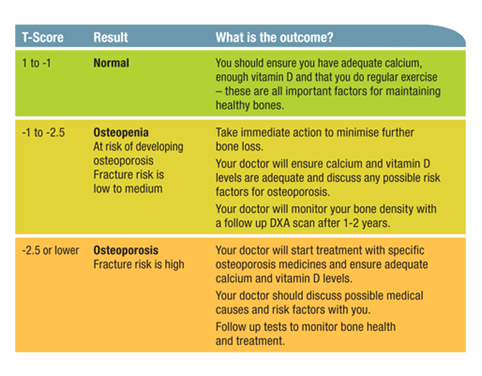You have been diagnosed with low bone density, what does that mean and why should you do resistance exercise?
What is Low Bone Density?
Bone is made from two main components; Calcium and Collagen.
Very simply Calcium provides stiffness and Collagen provides flexibility giving bones both strength and then the ability to withstand force without just snapping.
Some people develop an imbalance, where essentially Collagen disappears over time and therefore letting the Calcium make the bones too brittle.
There are a few conditions that can happen with this particular problem:
Osteoporosis and Osteopaenia – Here is a link to the Osteoporosis Australia website, where you can find out all the important information if you have or think you might have Osteopaenia or Osteoporosis. https://www.osteoporosis.org.au/about-osteoporosis
Who gets Osteoporosis?
Osteoporosis is often referred to as a silent killer, as it is often that a fracture to someone’s hip, or pelvis or lumbar spine will result in the patient being admitted to hospital and never leaving due to other complications that arise from the seriousness of the Osteoporotic Fracture. If you are 40 and over and female and you are not physically active, then these are three risk factors.
Men do get Osteoporosis, so if you are over 40 years of age, physically inactive, then the risk factors are the same. Other risk factors include smoking and genetic history.
Why is resistance training so important?
There is evidence to suggest that resistance training performed at the right intensity can help to remodel bone. However in our experience the biggest impact of structured resistance training is to help you NOT to fall over. Injuries from falls can be much more serious for people with low bone density, due to the sometimes inability of the fractured bone to heal, depending on the location of the fracture.
Its very important to know that exercise in whatever form you do it in does NOT have to feel impossible or hard to start with. If you have not exercised for a number of years or ever before, we would start your programming and progress your programming just the same as any other person with some considerations to your existing diagnosis.
What options for doing exercise are open at Vector Health?
Exercise under direct supervision of a Physiotherapist or Exercise Physiologist. You can attend a nominated amount of sessions under supervision that is agreed between you and your therapist and progress to training in our private gym if you so desire.
If you are over 50 years of age, you can join into our Stronger for Longer Program – a group based program for older adults
Contacting Vector Health
Please call 4927 8190 to make an appointment to get started or email reception@vectorhealth.com.au for more information!

